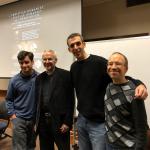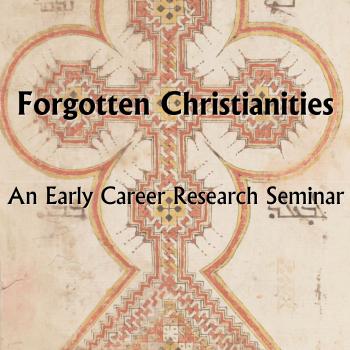What an odd path my academic life has followed. They say truth is stranger than fiction. I pursued study of the Bible bringing with me naïve assumptions about its historicity. Study challenged those assumptions. I then undertook research and then taught and continued researching the Bible using methods of historical critical analysis. Teaching gave me the opportunity to branch out into areas like the study of science fiction, which led me to write science fiction. That has led me to try writing historical fiction. And that is proving surprisingly relevant to the work I do about history, in all sorts of ways. I have begun revisiting ideas, hunches, and hypotheses about the history behind the Bible, discovering that the effort to turn those possibilities into stories, with plausible character motives and events, is providing a more rigorous testing thereof than any other critical analysis I had subjected them to.
As I have sought to narrate the thoughts as well as the conversations of characters, I have regularly wondered about how to make those sound plausibly ancient and at the same time plausibly human. We do not get access to the inner lives of ancient people, and that in itself is a fascinating topic for anyone interested not only in biblical literature but any aspect of the ancient world. To what extent did ancient people think and reason like us? Did they have a comparable inner monologue or dialogue, and in what ways might it have been different?
Nautilus had a piece that explores why ancient fiction doesn’t talk about feelings, which is a good starting point. I really do think that this is a truly fascinating subject, especially in relation to biblical literature, because it is the ancient literature that is probably most widely read in the modern English-speaking world. And yet I suspect that most readers of the Bible have not noticed the absence of this element that we take for granted in modern storytelling, because we take it for granted in our own experience.
It is true that the lack of focus on the inner lives of characters reflects the norms and interests of the ancient world. But it seems to also be the case that, conversely, ancient people had trouble discerning the motives and feelings of others because they didn’t have the sort of fiction we take for granted that provides an omniscient narrator’s perspective.
Of related interest, the issue of history, fiction, genre, and the blurriness of any distinctions we make along these lines is not in any way limited to the field of biblical studies. The Guardian had an article on the subject a while back. Of related interest, see also:
It might be worth making a comparison with the point I’ve made before about scholarship and apologetics representing a spectrum rather than a watertight distinction. This too is not a matter limited to biblical studies. A political scientist can be an activist and a scholar. A historian can be working as a scholar and yet draw conclusions driven by nationalistic ideology.
See also the discussion of the use of the term “medieval” that was in the news recently.













